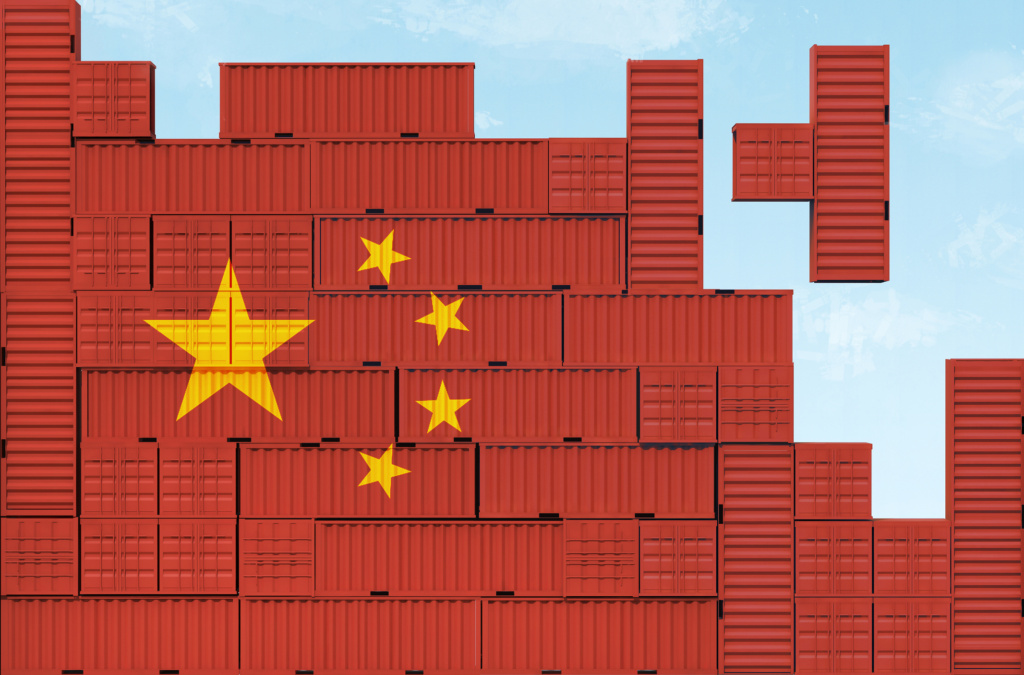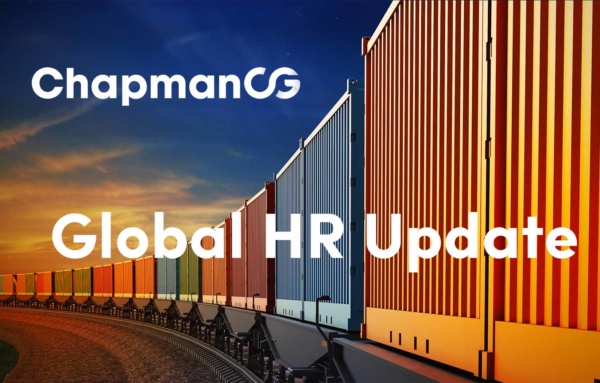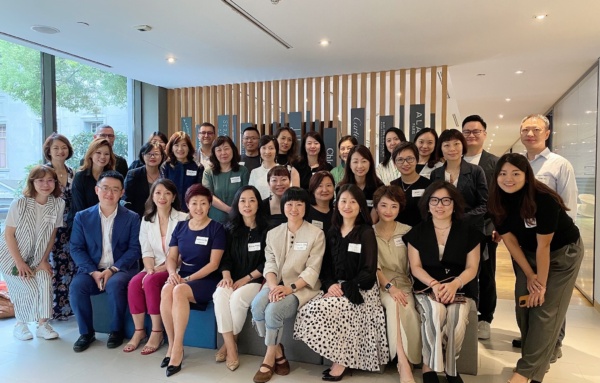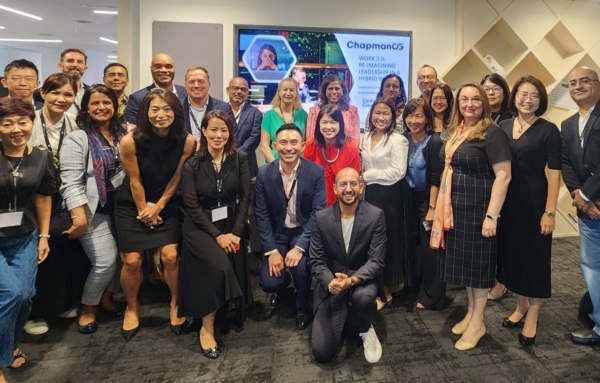
Over the past 30 years, China’s economy has experienced rapid growth. However, this high growth came to a pause with the pandemic due to various factors, including economic and geopolitical dynamics. Now, with the lifting of restrictions, China’s economy is expected to recover as mobility and activity increase.
Given the new challenges and dynamics, how will the HR talent landscape evolve in China? What should multinational companies be aware of as they plan for their future HR strategies in China? With these questions, the ChapmanCG China team shared the following observations and thoughts:
Gone are the Easy Days
China and multinational corporations (MNCs) have had a mutually beneficial relationship over the past few decades. The high economic growth was a magnet for MNCs, which flocked to China to capture part of the growth. By the end of 2020, a total of 1,040,480 foreign companies were registered in Mainland China, according to official data provided by the Ministry of Commerce (MOFCOM). At one point, MNCs employed 16 million people and accounted for more than half of China’s exports. However, with the rise of local companies, particularly in sectors like high tech, e-commerce, FMCG (consumer packaged goods), and life sciences, MNCs are no longer always the first choice for talent. How to build strong value propositions and competitive talent attraction strategies to compete locally has become an ongoing focus for multinational organisations and their HR leaders.
On the flip side, talent can no longer ride in an extremely talent-short market where they expect rapid promotions and significant salary increases in short periods of time. While there was a time when organisations would try to poach talent who have only been in a role/business for two to three years, there is now more focus on proven resilience and loyalty and less tolerance for job hopping.
Caroline Yang, Head of HR China at Kimberly-Clark shared with us:
In today’s competitive landscape, 95% of FMCG growth stems from local companies. This trend underscores the need for multinational corporations to realign their strategies, values, and organisational capabilities, which are essential for success in talent and performance. Simultaneously, local companies have the chance to foster a unified culture rooted in genuine respect for their people, paving the way for sustainable growth and prosperity.
Changing Talent Spread
The initial entry of MNCs to China saw a strong presence of traditional industries like manufacturing, chemicals, and industrial, followed closely by technology, healthcare, and financial services. In the past 10 to 15 years, more consumer-oriented industries, such as FMCG and luxury retail, grew significantly. This changed the dynamics of talent attraction, as well as the different competencies and skillsets required.
From a geographic spread perspective, tier one cities like Shanghai, Beijing, Guangzhou, and Shenzhen continue to be the key locations for MNC headquarters and desired sites for R&D and manufacturing centres. Noticeably, there is a rising layer of ‘new Tier One’ cities like Chengdu, Chongqing, Hangzhou, Wuhan, Xi’An, and Suzhou, which have become more and more attractive to both MNCs and candidates due to better cost-effectiveness and lifestyle/work-life balance. The market penetration for industries like FMCG and retail also required organisations to be well-layered in all tiers of cities, even beyond tiers one and two.
Work on Your Employee Value Proposition: What HR Talent is Looking For
Under growth constraints and tough competition, it has become even more critical for MNCs to have the right market strategies, growth plans, and the right leaders and talent to help them execute and charge forward.
As Grace Ge, VP, Head of HR, China from Herbalife Nutrition tells us:
With the evolution of the talent market, a well-defined and daily-manifested EVP can’t be missed as one of the win-through-talent strategies. It calls for the awareness of rising local talent and the unfulfilled demand of “local-growing into-global.”
To win the war for talent, employers need to understand these key factors from the perspective of the potential employee. HR leaders often look at the standard employer branding areas, but the talent consider additional factors when evaluating a new opportunity:
- The company’s branding and competitive positioning, including the company’s stability in relation to ongoing development plans in China.
- Competitive compensation. While salary growth is no longer the foremost factor, most candidates still aim to maintain a reasonable market-level income.
- A company’s position on global sustainability, and shared values that resonate with employees.
Caroline Yang reiterates this point:
Today, an individual’s value isn’t solely determined by the company they work for, but by their individual talents, achievements, values, and strengths. Top talent now gravitates towards businesses where their skills, as well as their values, are aligned, redefining success in the contemporary era.
- A mature platform, with specific attention to whether HR assumes a significant role within the organisation, participating in critical decision-making rather than solely engaging in operational HR activities.
- The presence of a business leader (typically the country’s General Manager), who appreciates the value of HR, is pivotal for attracting future talent.
- Global visibility, affording opportunities for regular participation in global meetings and discussions on HR-related matters.
The China landscape is not easy to navigate as Damien Schrobiltgen, Vice President Human Resources, Asia Pacific, Goodyear, tells us:
Rapid changes in the talent landscape require that multinational organisations adapt or even reinvent their strategies to attract and retain top talent. Partially due to the Covid-19 situation, it is evident that the focus has shifted, and employees are now focusing on organisations where they believe in the bigger purpose and the impact they can create on the world of tomorrow. They are looking for flexibility and autonomy, not only where and when I work but also how the work gets done. Beyond that, associates are now expecting that we invest in their personal growth, as people not just professionals, with an increased focus on well-being, be it physical, mental, social or financial.
It is time to refresh your EVP if you haven’t done it yet!
What will all this do for China in 2024?
With the opportunities and challenges co-existing in the coming new year, HR leaders in China have a lot on their shoulders to help their businesses and organisations get through. High in demand will be the skillsets of transformation, change leadership and driving business impacts, and well as thought leadership within the global leadership community. As Cathy Mao, HR Country Head, ASML said:
Embrace the future as it is right here at the moment. We need to think differently about China people strategy and act as an owner more than ever through growing local leadership, talent, and culture in a co-creative manner.


 Kalkin Cao
Kalkin Cao Steve Brown
Steve Brown Lorraine Hwang
Lorraine Hwang Finian Toh
Finian Toh Elaine Khoo
Elaine Khoo

 Andrea Merrigan
Andrea Merrigan Orelia Chan
Orelia Chan Stanislav Medvedev
Stanislav Medvedev Fleur Daniell
Fleur Daniell Tim Rayner
Tim Rayner Nicola Hasling
Nicola Hasling Stefanie Cross-Wilson
Stefanie Cross-Wilson


